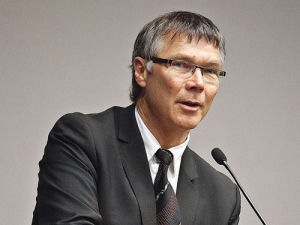David Parker’s comments come in the light of a report by the Ministry for the Environment and the Department of Statistics called ‘Our Land 2018’, a stocktake of impacts on the environment.
Parker wants his officials to immediately start work on a national policy statement (NPS) on versatile land and high class soils. This notable move by the minister will elevate ‘versatile land’ to the same status policy-wise as freshwater management, renewable energy, electricity transmission and urban development and capacity.
Parker says he’s taking steps to address issues such as the loss of prime commercial growing land at Pukekohe, as Auckland expands, and the impact of lifestyle blocks on our most productive land.
“Even in a country as lucky as New Zealand we only have limited quantities of these high-class soils. We have to ensure we have enough land to build the houses people need, but we must protect our most productive areas too,” Parker says.
The report also notes there is limited information about how quickly the most versatile land is shifting to urban use. But it shows that between 1990 and 2008, Auckland and Canterbury have gobbled up the most high-class soils for urban use.
And it highlights that lifestyle blocks may pose a greater risk than urban expansion to the availability of high quality soils for the primary sector. Lifestyle blocks have boomed in recent decades: a 2013 survey showed that 175,000 lifestyle blocks covered 873,000ha. There is no information on the productivity of lifestyle blocks and their impact on food production.
The news of Parker’s move has delighted the chief executive of Horticulture NZ, Mike Chapman.
“We are thrilled to have got so far so quickly with the new minister,” he told Rural News.
Chapman says HortNZ has campaigned for about 18 months to get central government to direct regional and local councils to protect high quality land (5.2% of NZ’s terrain).
“We have been campaigning to get in place something like a national policy statement (NPS) under the Resource Management Act, because it will mean that when we are submitting to councils about protecting those soils it will have the backing of an NPS which is a direction to councils. Our submission will have greater weight it is certainly a good tool to have.”
Chapman says HortNZ finds councils tend to be focused on their own regions.
“They don’t realise that Pukekohe and Canterbury, for example, feed people in other parts of NZ.
“They must look after the land, not just for their own town but for all of NZ,” he says.
Other key findings
“The Government’s billion trees planting programme, which focuses on the ‘right tree, right place, and right time’ will help,” he claims.
Parker says the report also confirms the continued loss of our limited wetlands, which contain some of our most precious biodiversity and filters contaminants from land. He says more must be done to protect these and he has already asked officials to begin working on a more comprehensive freshwater national policy statement to address concerns about sediment, wetlands and estuaries.
Not surprisingly, the report notes the shift from sheep and beef to dairying. It says while the total land used for horticulture and vegetable growing had decreased slightly, much more land is now growing fruit and berries.
And about 3% (800,000ha) is now irrigated.

















